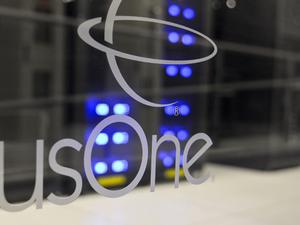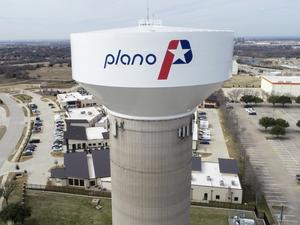As a CEO, Chris Bohner isn’t readying a plan to get everyone back to the office as if it were 2019 again. But he's not looking to go all remote either.
“We still believe the employee experience is worth investing in — and we still have employees that like to work with our colleagues in-person,” said Bohner, who heads up projekt202, a Dallas consultancy that’s part of Amdocs, a public software and services company (Nasdaq: DOX).
While projekt202 could have a co-working space, that's just not the same. He sees a more of an in-house approach. Office space is available — but less than what might be needed for the entire local workforce on a daily basis, especially in his industry.
“I think the model going forward will be attractive office space, with a lot of collaboration areas … in areas where there's interest in being in the neighborhood,” he said. That means it’s not “in a food desert, not a place where you can't go across the street and get a beer with your colleagues after work — a place where people have interest in being.”
This all comes after the company took a new local headquarters last year that covers more than 30,000 square feet. Bohner is consolidating the space in North Texas and other parts of the company. That includes sub-leasing or making changes when leases wrap up.
Amid growth in revenue during the recent fiscal year, the company is in a good place, he said. He gave more of his thoughts during the interview.
What did you see with COVID?
COVID hit all consultancies really hard in the short term. But we were well-positioned for it. I think what COVID did was make all companies realize that the digital experience they provide for not only their customers, but their employees is critically important to their success.
And so that has really been a cornerstone of our message to the marketplace. There are blips here and there; we had some real big clients have to shut things down, in some cases for over a year because of the status of their business. Many, many more reprioritized. Our business grew. It was the result of the good work that we’ve done and the recognition of the importance of the digital world going forward.
So what's your philosophy around the workplace? Has it evolved?
I think our philosophy and our approach has evolved by necessity. A lot of the work we've done historically has been very collaborative and in-person, it's sticky notes on whiteboards, and it's a very collaborative thing.
We've proven through technology that we can do what we do just as effectively remotely and virtually. So, our expectation is that the office of the future will be more of a lure than a requirement. It's on us as a company to make the office a place where people have an interest in collaborating and participating and gaining community and gaining some sense of gravity.
But the requirement of people to be in there from an effectiveness of work standpoint really doesn't exist anymore. And I think the pandemic accelerated it, but we had people working remotely before the pandemic hit.
Why is it not the same to do remote work than be in-person?
Our teams still like to have space built out for the way we use it. We have labs in some of the offices where we can do ethnographic research. We have the two-way mirrors where we can watch people interact with things and take cues and inform our process as a result of that.
There are things unique to what we do. And there's a need for more collaboration space, maybe necessarily but also the ability to put your head down and get work done. And so our spaces are built out for the way we work and the way we want to interact. Our only limitation as a company is our ability to attract and retain great people.
This interview has been edited for brevity and clarity.






